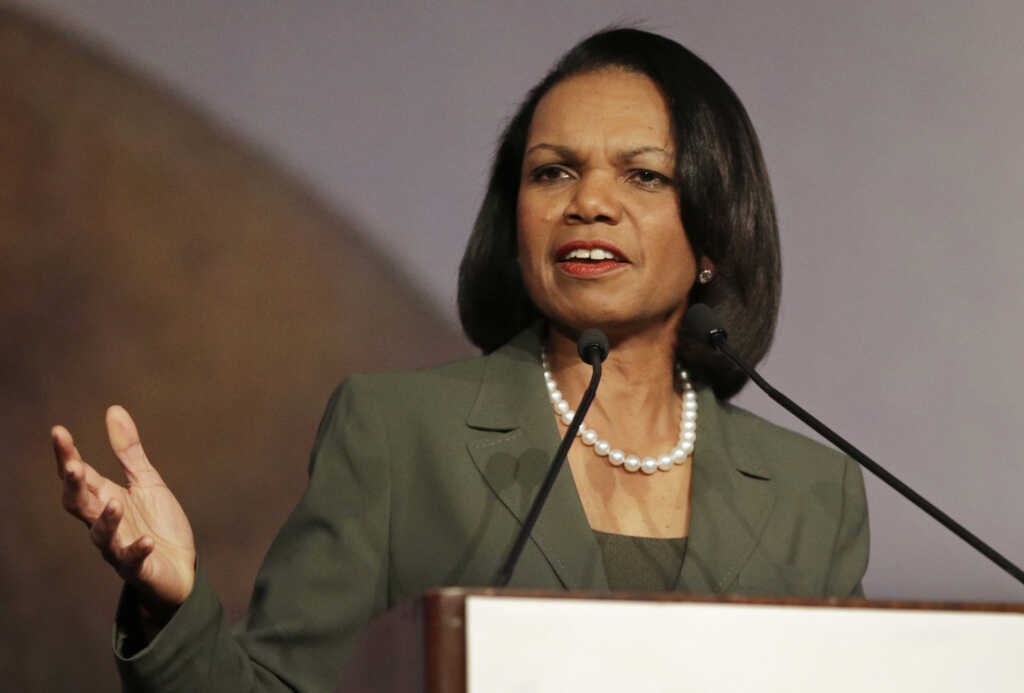Former Secretary of State Condoleezza Rice sees a “big problem” on the left when it comes to solving lingering racial disparities in the United States.
Rice, the first black American to serve as secretary of the U.S. Department of State, talked about systemic racism during a Zoom call with New York Times’ Peter Baker for the Aspen Security Forum.
“I don’t really care if we’re colorblind, but I would like to get to a place that, when you see somebody who is black, you don’t have preconceived notions of what they’re capable of, who they are — by the way, what they think, which is a big problem of the left,” Rice said. “You look at somebody who’s black and you think you know what they think, or you at least think you know what they ought to think.”
One example of this issue bearing itself out occurred in May, when presumptive Democratic presidential nominee Joe Biden said during an interview with liberal talk radio host Charlamagne tha God, who is black, that voters “ain’t black” if they choose President Donald Trump over him.
Rice explained to Baker she does believe systemic racism remains an issue in the U.S., calling slavery the country’s “birth defect.”
However, she explained it’s critical to target tangible issues with actionable steps, rather than going after a loosely defined proverbial boogeyman.
“I am not one who believes you can just sort of ‘take on systemic racism,’” Rice said. “I don’t even know how to start. I do think you can take on the impact of the educational system for minority kids that leaves most of them behind. I think you can take that on. But people might not like my answer. My answer is: let’s do school choice in a big way.”
President Donald Trump and Education Secretary Betsy DeVos are both advocates for school choice, a system in which the government sends tax dollars back to families so they can choose the best academic fit for their children.
In January, Trump called school choice the “civil rights statement of the year.”
“We’re fighting for school choice, which really is the civil rights of all time in this country,” he said. “Frankly, school choice is the civil rights statement of the year, of the decade, and probably beyond, because all children have to have access to quality education.”
“A child’s zip code in America should never determine there future,” the president continued. “And that’s what was happening. So we’re very, very strong on school choice.”
And in late July, Trump urged schools to reopen for in-person instruction. If they don’t, he argued, “the funding should go to parents to send their child to public, private, charter, religious, or home school of their choice.”
Rice, for her part, also addressed the ongoing monument issue during her conversation with Baker. She criticized people on both sides of the debate surrounding the historical statues across the country.
She said she isn’t certain why people would defend Confederate monuments and likewise expressed confusion at those who are tearing down statues of President Abraham Lincoln and abolitionist Frederick Douglass.



